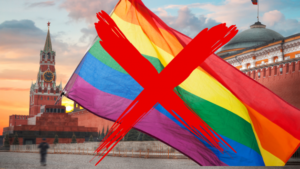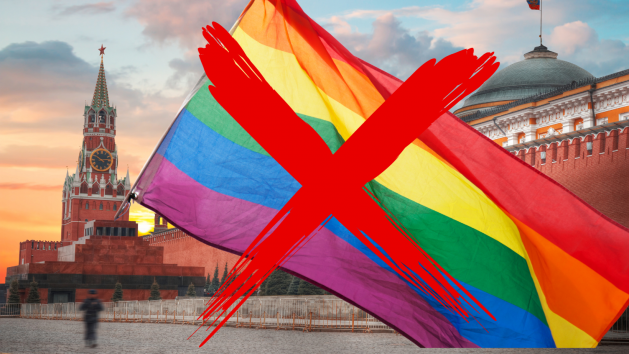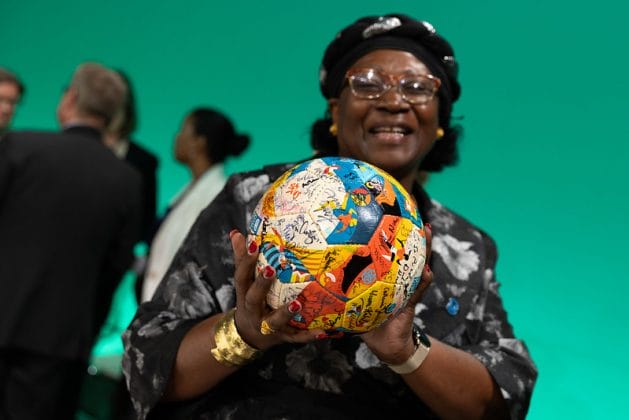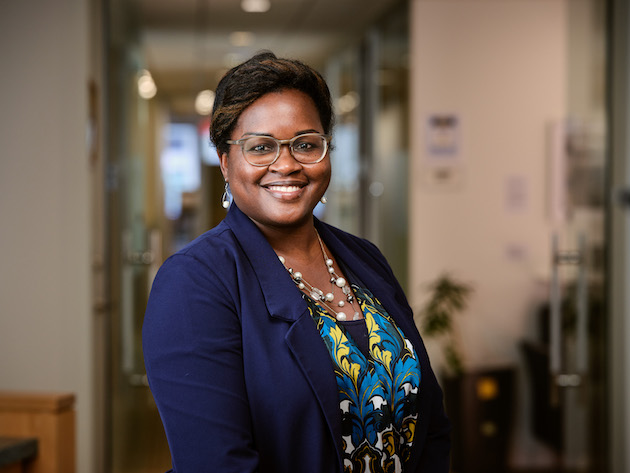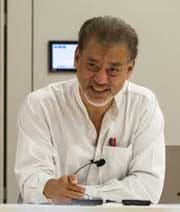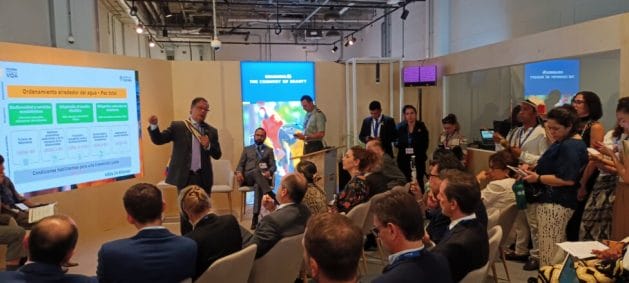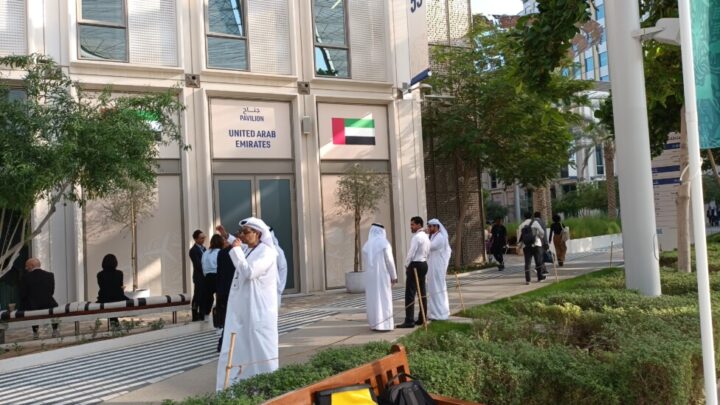
Civil Society, Democracy, Featured, Global, Headlines, Human Rights, IPS UN: Inside the Glasshouse, TerraViva United Nations

Dr. Martin Luther King and Mrs. King are greeted by Ralph Bunche on a visit to the United Nations in 1964. Credit: UN Photo
Ralph Bunche received the 1950 Nobel Peace Prize for his late 1940s work as a United Nations mediator in the Palestine conflict. He called himself ‘an incurable optimist’. Bunche was the first African American and person of color to be so honored in the history of the prize.
– All through this week, leading up to January 15th, the world will commemorate Martin Luther King. In a world as wounded as ours is today, the lessons of his life’s work offer a vital opportunity for healing.
But the opportunity to hear his message continues to be obstructed: too many of the soundbites of TV pundits and the tweets of politicians are, once again, not distilling the insights of Dr King, but are serving instead to obscure a library of wisdom behind wall-to-wall repetition of the same few lines, extracted from their context, of one speech.
This is not a mistake, it is a tactic, and we owe it not only to the legacy of Dr King but to the future of our world to ensure that his authentic message is shared.
The true message of Martin Luther King is not a saccharine call for quietude or acceptance, but an insistence on being, as he put it, “maladjusted to injustice.” It represents not an idle optimism that things will get better but a determined commitment to collective action as the only route to progress.
When Dr King said “the arc of the moral universe is long, but it bends towards justice”, he didn’t mean this process is automatic; as he noted, “social progress never rolls in on wheels of inevitability; it comes through the tireless efforts of people.”
And he was clear that advancement of progress requires the coming together of mass movements, “organizing our strength into compelling power so that government cannot elude our demands.”
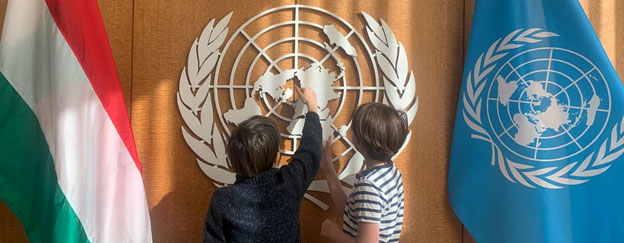
Children from a dozen countries met with the President of the General Assembly and toured the United Nations on a federal holiday in the United States honouring the late civil rights leader and Nobel Peace Prize laureate, Martin Luther King Jr. 17 January 2023. Credit: Paulina Kubiak, United Nations
Justice, Dr King taught, is never given, it is only ever won. This always involves having the courage to confront power. Indeed, he noted, the greatest stumbling block to progress is not the implacable opponent but those who claim to support change but are “more devoted to order than justice.” As he put it, “frankly I have yet to engage in a direct action movement that was ‘well-timed’ in the view of those who have not suffered unduly; this ‘wait!’ has almost always meant ‘never.’”
When the civil rights movement’s 1962 Operation Breadbasket challenged companies to increase the share of profits going to black workers and communities, it was only after the movement showed that they could successfully organize a boycott that those companies, in Dr King’s words, “the next day were talking nice, were very humble, and [later] we signed the agreement.” As he noted when challenged by “moderates” who asked why he needed to organize, “we have not made a single gain without determined pressure…freedom is never voluntarily given by the oppressor, it must be demanded by the oppressed.”
Advancing progress, he emphasized, involves challenging public opinion too. Organizers cannot be mere “thermometers” who “record popular opinion” but need to be “thermostats” who work to “transform the mores of society”. In 1966, for example, a Gallup Opinion poll showed that Dr King was viewed unfavourably by 63 per cent of Americans, but by 2011 that figure had fallen to only four per cent.
Often, people read the current consensus view back into history and assume that Dr King was always a mainstream figure, and imagine, falsely, that change comes from people and movements who don’t ever offend anyone.
Dr King’s vision of justice was a full one. It called not only for the scrapping of segregation, but for taking on “the triple prong sickness of racism, excessive materialism and militarism.” He challenged the “economic conditions that take necessities from the many to give luxuries to the few” and noted that “true compassion is more than flinging a coin to a beggar, it understands that an edifice which produces beggars, needs restructuring.”
He spoke out against war not only for having “left youth maimed and mutilated” but for having also “impaired the United Nations, exacerbated the hatreds between continents, frustrated development, contributed to the forces of reaction, and strengthened the military-industrial complex.”
He noted how “speaking out against war has not gone without criticisms, there are those who tell me that I should stick with civil rights, and stay in my place.” But he insisted that he would “keep these issues mixed because they are mixed. We must see that justice is indivisible, injustice anywhere is a threat to justice everywhere.”
When I went to Dr King’s memorial in Atlanta I did so to pay my respects at his tomb. But arriving at the King Center I found a vibrant hub of practical learning, at which activists and organizers working for justice were revisiting Dr King’s work and writings not as history that is past but as a set of tools to help understand, and act, in the present.
Together, we reflected not only on his profoundly radical philosophy, but also on his strategies and tactics for advancing transformational change. Conversations with Dr King’s inspirational daughter, Bernice, were focused not on her father’s work alone; instead, she asked us what changes we were working for, and how we were working to advance them.
This year, on 10th January, the King Center is hosting a Global Summit, a series of practical conversations accessible to everyone, for free, online. I’m honoured to be panelist. It is open for sign ups here.
“Those who love peace,” noted Dr King, “must learn to organize as effectively as those who love war.” And he even guided us how.
Ben Phillips is the author of How to Fight Inequality, Communications Director of UNAIDS, and a panelist at the King Center Global Summit on 10th January.
IPS UN Bureau

